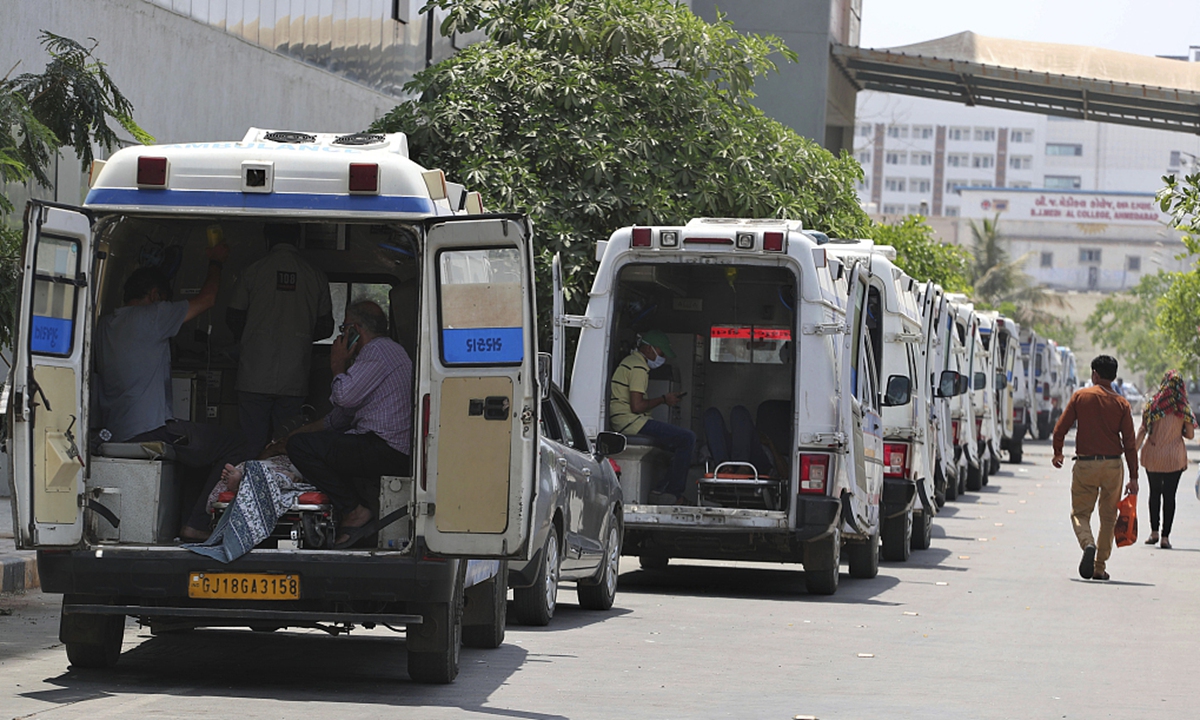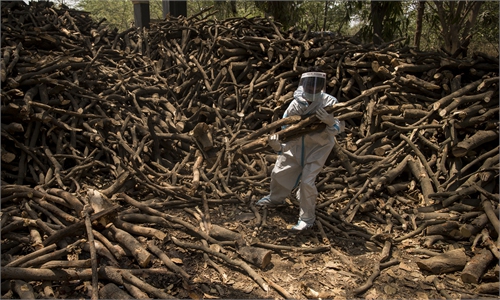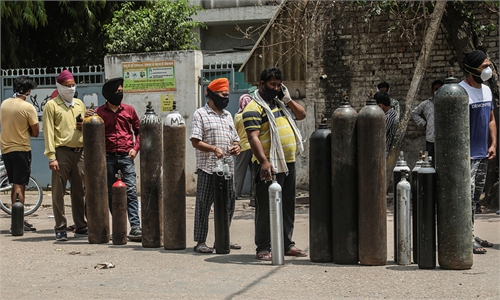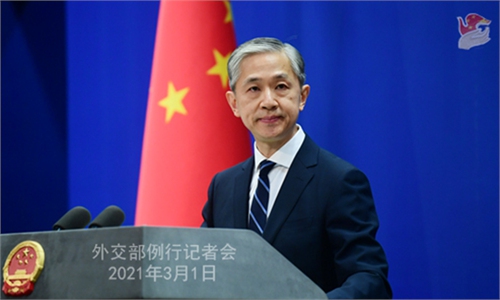
India's daily new COVID-19 cases reach record high Photo:VCG
India is a face-saving country. It usually feels embarrassed to ask for foreign assistance, and is sensitive to such aid. It was not until April last year that India signaled a shift from its old stance of not accepting foreign assistance during calamities. As a result, New Delhi will look more warily and struggle to welcome support from Pakistan.
It is a hard question for India to accept or refuse this offer. On the one hand, relations between India and Pakistan have been strained. India may feel that its dignity and national status are being questioned if it accepts aid from Pakistan. On the other hand, controlling the epidemic as soon as possible to save the health of its people should be the priority right now.
The severe situation in India may spread to surrounding areas such as Pakistan. In this context, Pakistan's offer is actually being done out of the consideration that India and Pakistan share weal and woe. At the same time, this is a sincere and opportune moment for Pakistan to take the initiative to improve India-Pakistan relations.
In fact, the complexity of India-Pakistan relations is the result of long-standing and deep-rooted issues. These include Kashmir, cross-border terrorism, and the rivalry between the two countries over national security strategies. The antagonism of interest groups, deep-rooted contradictions and attitudes of public opinion in both countries have determined that it is unrealistic for the two countries to improve relations or even achieve a breakthrough in the short term just because of such a gesture from Pakistan.
Under the Twitter account of the Times of India, there are some comments from Indian netizens, saying that "don't fall in this trap," and, "[Pakistan] should just stop cross-border terrorism, rest all [India] will manage." Such venomous counterattack of public opinion could hamper interactions between the two governments as well. For a long time, India's domestic insistence to discredit Pakistan with propaganda and confrontation has become politically correct, making the public's anti-Pakistan sentiment become normal.
Yet with India suffering from the virus, Pakistan has put aside past enmity to provide aid. Meanwhile, the US failed to offer real and solid assistance India badly needs now. It is time for India to understand that, first of all, it should develop its strategies centered on people. The safety of the people is the most important thing at the moment. Geostrategic games, national enmity and political rivalry should be sidelined. Second, the virus demonstrates that the world is a community with a shared future for mankind. It is difficult for India to overcome the crisis by itself. And there is nothing shameful about accepting aid and support from other countries with goodwill.
After the crisis this time, India should also re-evaluate its relationship with the US and its allies, who have always proclaimed themselves as India's "big brother." The behavior of these so-called Western allies when India is clearly in deep trouble proves that these "partners" are only making use of India to contain China. During the first Quad summit in March, these countries were talking lip-service including expanding COVID-19 vaccine manufacturing capacity in India. Now that India is in disaster, the US was reluctant to help under the pretext of the "obligation to take care of the requirements of the American people."
India should reflect on the course of its pro-US diplomacy over the years. It ought to rethink its return to strategic autonomy. Besides, it should also understand the importance of good interaction with its neighbors.
Now India is bearing the disappointing consequences of its choice. At the very least, the strategic choice of leaning to the US to contain China is completely wrong.
The author is head of the Department for Asia-Pacific Studies at China Institute of International Studies. opinion@globaltimes.com.cn




